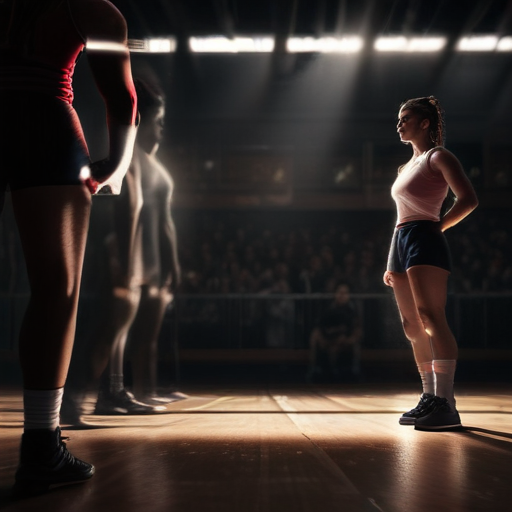Emma Raducanu’s recent match against Karolina Muchova brought to light a troubling incident that highlights the ongoing concerns many female athletes face regarding safety and harassment. Emotional clips from the match depicted Raducanu approaching the umpire and visibly distressed, not due to her performance but rather after observing unsettling behavior from a man in the crowd. This prompted her to report the situation, an action that underlines the importance of athlete safety in high-pressure environments.
Raducanu’s concerns resonate with the experiences of her fellow female players who have also faced stalking and harassment. For instance, Katie Boulter previously shared her own traumatic experiences, where she encountered a man making violent threats while following her at a tournament. Similarly, Danielle Collins recounted her vigilance stemming from repeated stalking incidents, noting that this vigilance can cause her to appear withdrawn in public. Sloane Stephens revealed how the harassment has become so normalized that it often goes unaddressed despite its frightening nature.
The issue of public scrutiny and abuse female athletes endure is exacerbated by the toxic behaviors ingrained in the sports culture. Statistics reveal that women athletes absorb a significant share of online abuse, with recent reports indicating they receive around 85% of all online harassment during events like the Tokyo Olympics.
Prominent organizations are taking steps to address these issues. Initiatives such as monitoring systems using AI are being implemented at events to curb online abuse. Despite this, many advocate that simply treating the symptoms is not enough. The root cause—systemic sexism and a lack of accountability within sports organizations—requires immediate attention and reform.
Stephanie Hilborne of Women In Sport emphasizes that the sports industry, largely male-dominated, needs to better understand these issues. As women athletes grow their profiles through social media, they simultaneously open themselves up to more exposure and potential backlash, often suffering the consequences of a historically entrenched sexist culture.
The recent findings by the UN highlight that the sports ecosystem still faces considerable barriers in combatting violence against women, revealing a defensive mindset among many sports federations focused more on protecting their image than ensuring athlete safety.
As visibility and recognition of women’s sports grow, there lies a parallel responsibility to ensure their environments are safe and equitable. This moment with Raducanu serves as a stark reminder of the challenges female athletes face, underscoring the urgent need for collective action to address harassment and foster a culture that empowers rather than endangers.
This discussion around women in sports is catalyzing crucial conversations about gender equality, and with continued awareness and proactive measures, a safer and more inclusive athletic community can be cultivated.
